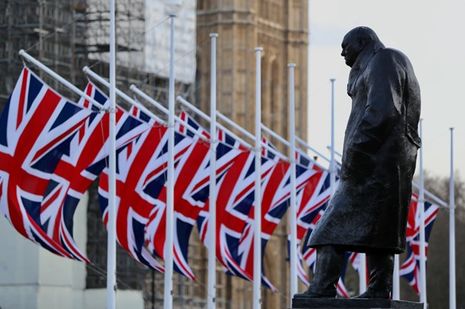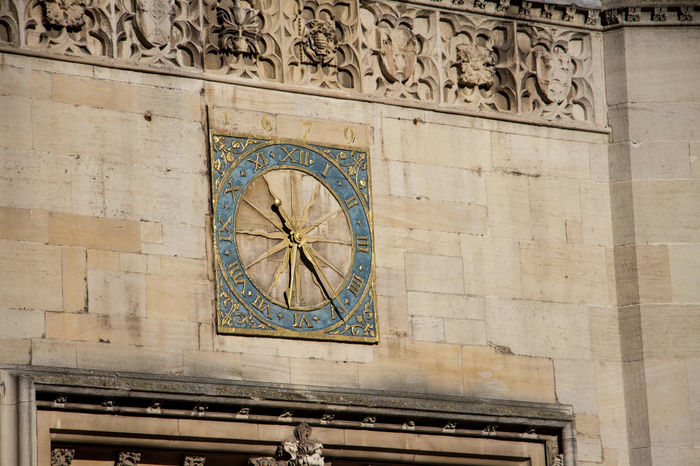Churchill College panel discusses the ‘racial consequences’ of Winston Churchill
The panel of academics discussed Churchill’s views of ‘white supremacy’ and his ‘mythic status’ in British public life

A panel held last week (11/02) by Churchill College critically discussed Winston Churchill and the legacy of his racial views.
The discussion, entitled ‘The Racial Consequences of Mr Churchill’, brought together four academics for a “critical re-assessment of Churchill’s life and legacy in light of his views on empire and race.” The academics were Professor Priya Gopal – who chaired the discussion – Professor Kehinde Andrews, Dr Madhusree Mukerjee and Dr Onyeka Nubia.
Dr Onyeka Nubia, a renowned historian of Black History, discussed how Churchill was influenced by “ideas of white supremacy” and “eugenics”. He went on to discuss quotes attributed to Churchill, including: “The Aryan stock is bound to triumph”.
Dr Madhusree Mukerjee, author of ‘Churchill’s Secret War: The British Empire and the Ravaging of India during World War II’, discussed the Bengal famine of 1943 and its “connection” to “Churchill’s white supremacy”, in particular his reference to Indians as “rabbits”.
Professor of Black Studies at Birmingham City University, Kehinde Andrews, argued that Churchill was “the perfect embodiment of white supremacy” and has “a mythic status” because “white supremacy is still the politics of the day”.
The panel also discussed the emotional response to accusations of racism against Churchill. Professor Kehinde Andrews suggested that Churchill is seen as “a saintly figure who’s beyond reproach” because he is “the embodiment of the Second World War” and that to question him is to threaten an “important part of British identity”.
Andrews further argued that this attitude means that it is not possible to have a rational conversation about history, but rather that the conversation surrounding Churchill is focussed on “delusions”, and that the notion that Britain defeated racism in the Second World War is “irrational.”
Professor Priya Gopal, a fellow at Churchill College, commented that, in Britain, there is a certain “privileging [of the discourse] of the war against facism and a silencing around the question of empire.”
The panel went on to discuss historical monuments such as statues. Professor Kehinde Andrews stated: “Memorials are not historical artefacts […] the conversation that we are getting rid of history is ridiculous. The point of statues isn’t historical record, but is to celebrate a particular thing.”
Andrews added that statues of slave traders provide a statement on “what’s acceptable in the public space.”
Dr Madhusree Mukerjee added that statues represent values that are worshipped, and that any process of taking them down should “involve a real grappling with what empire actually means, and the United Kingdom finding a new identity that isn’t so fundamentally based on a false premise of glory.”
Dr Onyeka Nubia commented: “Just the removal of statues doesn’t change hearts and minds […] it doesn’t change the institutional nature of racism [...] we have to change the institutions within this country.”
When the event was first announced, it faced some backlash, garnering criticism from various figures including former Tory MP Sir Nicholas Soames, Churchill’s grandson.
Soames told the Daily Mail: “It seems to me extremely unlikely young ladies and gentlemen will get a balanced view of Churchill’s life”. He referred to an “idiotic debate [surrounding Churchill] that’s got out of control in all our universities.”
Meanwhile Frank Furedi, Emeritus Professor of Sociology at Kent University, called it “a plundering of history and a systematic attempt to recant the past.”
In response to these criticisms, a Churchill College spokesperson said “the event on February 11th is a panel discussion, not a debate, and is specifically designed to be a more critical reassessment of Churchill’s imperial legacy.”
A student at Churchill College involved with setting up the discussion told Varsity that the controversy around it is more beneficial to “the reparations project” than the absence of any such debate, adding that the committee’s objective was to initiate a wider debate beyond the College.
Churchill’s position in British public life, alongside the wider racial issues within British society, has come under renewed scrutiny since the Black Lives Matter protests last summer. At one of the protests in June, Churchill’s statue on Parliament Square was daubed with the phrase “was a racist.” The statue was later encased in a box to protect it from protesters.
Shortly after the Black Lives Matter protests, Churchill College released a statement saying they “welcome[d] an honest and critical engagement with history in all its fullness.”
The statement added: “We accept this will involve some difficult discussions around important historical figures which we will actively seek to facilitate. Churchill, as a successful leader in time of war, must not be mythologised as a man without significant flaws; on race he was backward even in his day.”
The first discussion, called ‘Churchill, Empire and Race: Opening the Conversation’, took place on the 27th October, featuring a discussion by Professor Priya Gopal and Professor Richard Toye, of Exeter University.
 News / Judge Business School advisor resigns over Epstein and Andrew links18 February 2026
News / Judge Business School advisor resigns over Epstein and Andrew links18 February 2026 News / Gov grants £36m to Cambridge supercomputer17 February 2026
News / Gov grants £36m to Cambridge supercomputer17 February 2026 News / Hundreds of Cambridge academics demand vote on fate of vet course20 February 2026
News / Hundreds of Cambridge academics demand vote on fate of vet course20 February 2026 News / CUCA members attend Reform rally in London20 February 2026
News / CUCA members attend Reform rally in London20 February 2026 News / Union speakers condemn ‘hateful’ Katie Hopkins speech14 February 2026
News / Union speakers condemn ‘hateful’ Katie Hopkins speech14 February 2026











